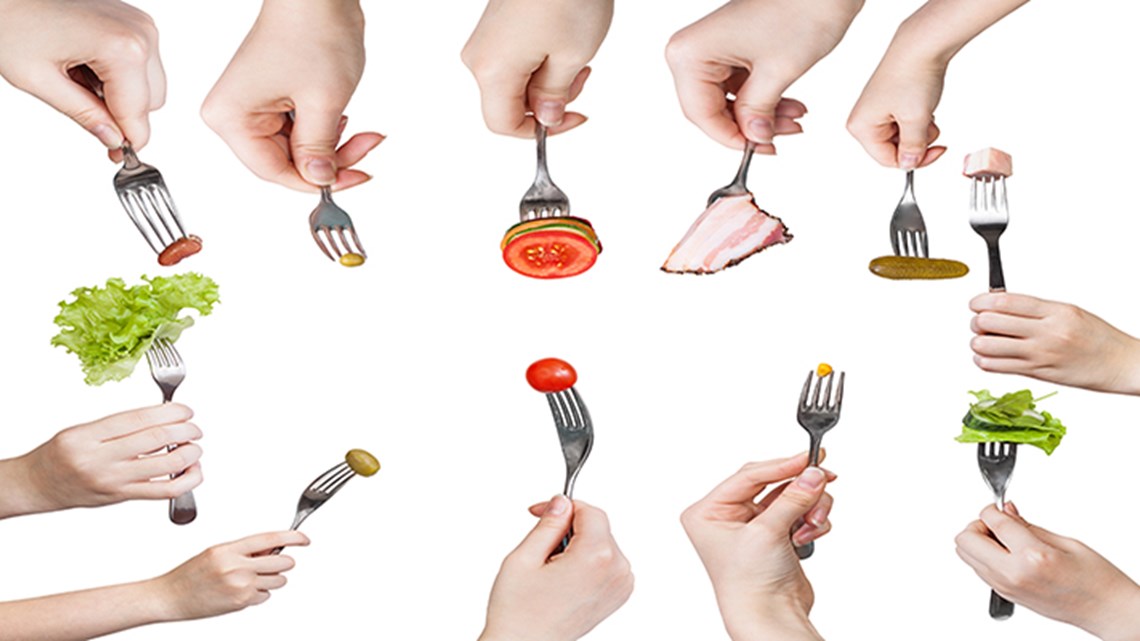Food poisoning (foodborne illness)
Food poisoning (foodborne illness) occurs when we eat food that has been contaminated - usually by bacteria or viruses. It can be unpleasant, but it rarely requires medical treatment. With plenty of fluids, good hand hygiene, and light meals, you can be back to full health in a day or two.
Food poisoning occurs when we eat foods contaminated by harmful germs such as Campylobacter, Salmonella or E. coli which include meat, poultry, eggs, fish and seafood, raw fruits and vegetables where there is an abundance of germs that can spread through unwashed hands or Easily spread through surface contamination (such as chopping boards, cooking utensils, taps, etc.) on food and kitchen surfaces. Cross-contamination between surfaces contributes to about 40% of all foodborne illnesses. That's why we need extra care while handling or preparing food in the kitchen. Just remember the 4Cs of food hygiene – cross-contamination, cleanliness, cooking, and chilling.
Causes of food poisoning
Campylobacter, Salmonella, Listeria, E. coli and Norovirus (winter vomiting virus) are the main causes of food poisoning.
Here are some of the most common reasons:
- Raw food or undercooked food (especially poultry, pork, burgers, sausages and kebabs).
- Food which is 'out of date' or was not correctly refrigerated.
- The food which has been touched by any patient of diarrhea or vomiting.
- Cross contamination (where germs are spread to other foods from a contaminated food).
Food poisoning Symptoms
Depending on the type of germ, symptoms can start from one to 36 hours after eating contaminated food.
You may experience one or more of the following:
- Nausea
- Vomiting
- Diarrhea
Other symptoms may include:
- Abdominal cramps
- Abdominal pain
- Loss of appetite
- High temperature
- Muscle pain
- Chills
If you have a stomach virus or an upset stomach drink plenty of fluids and if possible take an oral rehydration solution (ORS). It will make up for the deficiency of mineral salts caused through vomiting or diarrhea. These usually come in sachets and are dissolved in water and consumed.
Eat as normal, but try to keep meals a little more light. Avoid eating spicy, salty or sweet foods in abundance.
If your symptoms last more than a day or two or you are in pain, talk to your health care provider.
Food poisoning prevention tips
Thankfully there is a lot you can do to prevent a foodborne illness. Follow the 4Cs of food safety.
Cleanliness:
- Practice good hand hygiene: Remember to wash your hands regularly with soap and water, especially after using the toilet, and before preparing food and after eating food – if you are outside and you can't find a tap, stay safe from germs by using Dettol Multi Use Wipes or Hand Sanitizer.
- Keep food preparation surfaces clean and disinfected: After preparing food (especially raw meat, fish or eggs), use a Dettol kitchen gel to wipe down any kitchen surfaces you have used. Dirty utensils, cutlery and crockery can be cleaned with detergent and hot water.
Cook food thoroughly reheated Heading 3 Make
Make sure that reheated food is being served hot and should never be reheated more than once. Non-vegetarian food should be thoroughly cooked – no trace of pink meat should be visible.
Refrigerate, cover, and refrigerate cooked food within one hour
Place larger portions in separate smaller containers, if necessary, to speed up cooling. Follow packaging directions for refrigerating fresh food and eat (or dispose of) the food within the 'use by' date.
Avoid cross-contamination
Remember to wash your hands before preparing food and immediately after handling raw materials. You should prepare raw food in the kitchen using separate utensils and chopping boards by keeping it away from cooked food. Never place raw food on top of cooked food in the refrigerator as dripping can contaminate cooked food.

